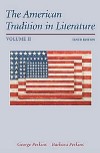"Phillis Wheatley" was the name given to a precocious African slave girl by John Wheatley and his wife upon the young child's arrival at their home in Boston in 1761. Obviously gifted, the 8 or 9 year-old girl's instruction became a family project. The Wheatleys set out to educate her in the scriptures and the classical readings of the day. Placed under the tutelage of young Mary, the Wheatley's daughter, Phillis noted that she was treated more like a member of the family than as a servant. A quick learner, Phillis was reading and writing English within 16 months. By the time she was 20, she had already published four broadside poems, including one, "Recollections," in The London Magazine. Phillis's first major work, an elegy on the death of the Rev. George Whitefield, a popular Methodist preacher who helped ignite the "Great Awakening" in the late 1730's, was published when she was only 16. From that time on, Phillis found herself one of the most celebrated literary figures in Boston. In 1773, she published a small volume of poetry entitled Poems on Various Subjects, and in 1776, she married John Peters by whom she bore three children. She continued to publish in several periodicals and was working on a second volume when she died at the age of only 31. In her brief life, Phillis Wheatley was celebrated both in New England and abroad. John Wheatley arranged for her travel to London where she met the countess of Huntington, the lord mayor of London, and the earl of Dartmouth. Upon her return, General George Washington received her in Cambridge, after she had feted him with one of her celebratory poems. Her abilities to affect the style and lofty mandates of Neo-classical poetry amazed her literary colleagues and critics as much as did her ability to read the Roman classics in their original Latin. Phillis Wheatley mastered the conventions of the poetic forms and style of her period. Today, her execution seems somewhat stilted and, at times, a little forced, but no one can deny her place as one of the most remarkable women of the colonial 18th century. |



 2003 McGraw-Hill Higher Education
2003 McGraw-Hill Higher Education